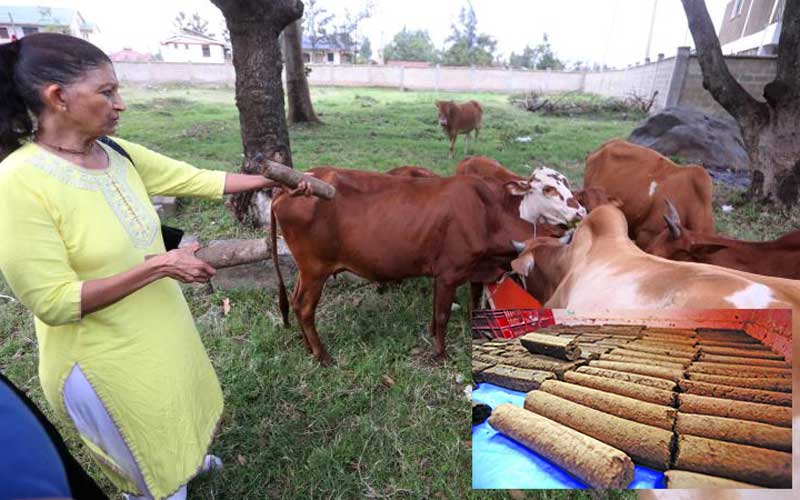×
The Standard e-Paper
Stay Informed, Even Offline

Mrs Kalpana Karia, the briquette projects coordinator at the Briquettes Processing Factory in Dunga, Kisumu County. Inset: The ready briquettes. [Collins Oduor, Standard]
Everybody is so busy on this farm, if you come with an agenda like conducting an interview, it is clear you are wasting their precious money-making time.